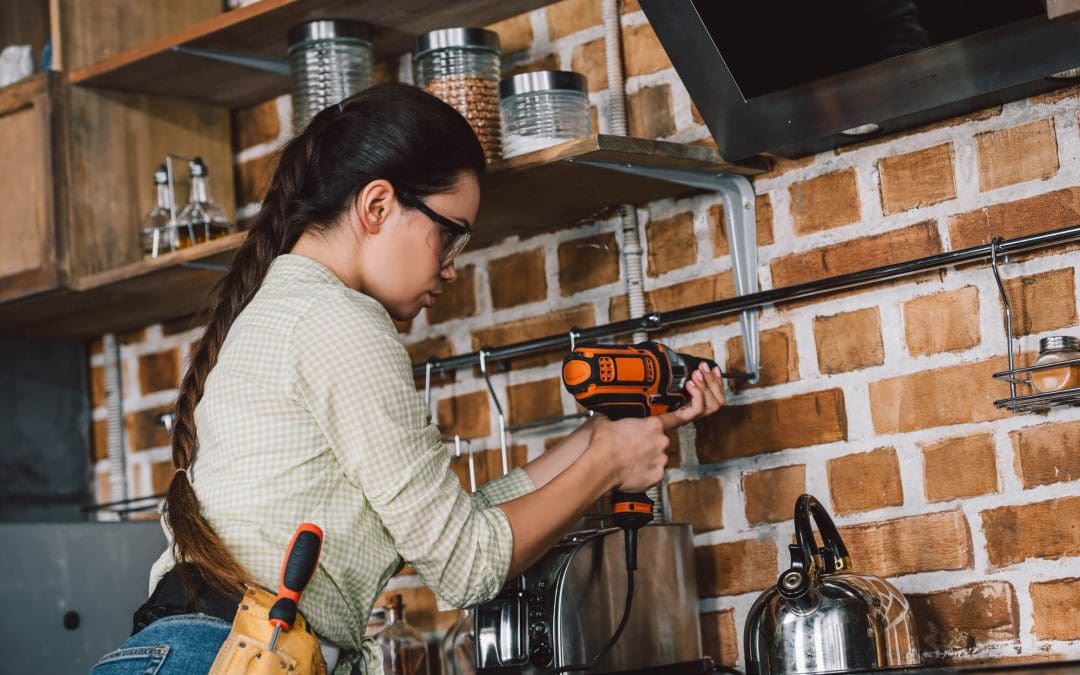A DIY project can be a fulfilling and cost-effective way to improve your home. However, many DIY enthusiasts encounter obstacles that can turn a simple project into a frustrating experience. Understanding common pitfalls and how to avoid them can save you time, money, and stress. Here are some of the most common mistakes in DIY projects so you know what to avoid on your next project.
Inadequate Planning Will Help You Avoid Common Mistakes in DIY Projects
One of the most frequent mistakes in DIY projects is insufficient planning. Many people dive into a project without clearly understanding what needs to be done or how to do it. This lack of preparation can lead to errors, missed steps, and unexpected complications. Before starting any project, take the time to research thoroughly, create a detailed plan, and gather all necessary tools and materials. Proper planning also includes carefully measuring the potential impact on other parts of your home.
Ignoring Safety Precautions
Safety should always be a top priority in any DIY project. Ignoring safety precautions can lead to severe injuries or damage. Common oversights include not wearing protective gear such as goggles or gloves, using the wrong tools for the job, or neglecting to follow safety instructions for power tools. Ensure you understand and follow safety guidelines for each tool and material you use. This includes proper ventilation when working with chemicals or materials that produce dust.
Common Mistakes in DIY Projects: Underestimating Time and Cost
Many DIY enthusiasts underestimate the time and cost required to complete a project. This underestimation can result in incomplete projects, budget overruns, and increased frustration. To avoid this, make a realistic assessment of how long the project will take and how much it will cost—factor in extra time for unexpected issues and expenses for potential mistakes or additional materials. Keeping a flexible schedule and budget can help you manage any surprises along the way.
Skipping Necessary Preparation
Skipping essential preparation steps is another common mistake. Whether it’s failing to clean and prep surfaces before painting or not pre-drilling holes before screwing, skipping these steps can compromise the quality of your work. Proper preparation ensures that your materials adhere correctly and that your finished project looks professional. Take the time to prepare surfaces and materials correctly to achieve the best results.
Choosing the Wrong Materials
Selecting the wrong materials can significantly affect the outcome of your project. For example, using interior paint for exterior walls or choosing the wrong type of wood for a particular purpose can lead to poor performance and durability issues. Always choose materials that are appropriate for your project’s specific requirements. Consult with experts if you’re unsure which materials best suit your needs.
Rushing the Project is One of the Most Common Mistakes in DIY Projects
Rushing through a DIY project is a surefire way to make mistakes. The urge to complete a project quickly can lead to sloppy work and overlooked details. Take your time to complete each step carefully and thoroughly. Rushing can also result in a lack of attention to detail, impacting the project’s outcome.
Failing to Seek Professional Advice
Sometimes, DIY projects can be more complex than initially anticipated. In these cases, failing to seek professional advice can lead to costly mistakes. If you encounter issues that you’re unsure how to resolve, don’t hesitate to consult with a professional. Whether it’s a plumber, electrician, or contractor, professional guidance can help you navigate challenges and ensure your project is completed correctly and safely.
DIY projects offer an excellent opportunity to personalize and improve your home but come with challenges. With careful preparation and attention to detail, your DIY projects can be a rewarding and enjoyable experience.
FAQs
How do I know if a DIY project suits my skill level?
Assess the complexity of the project against your own experience and skills. Projects that require advanced techniques, specialized tools, or detailed knowledge may be better suited for more experienced DIYers or professionals. If unsure, start with simpler projects to build your skills before tackling more complex ones.
How can I minimize waste and save money on a DIY project?
Plan your project carefully to reduce waste. Calculate the exact amount of materials needed and reuse or repurpose existing items when possible. Shop for materials during sales or use coupons to save money. Keeping track of your spending and sticking to a budget can also help manage costs effectively.
Are there any common misconceptions about DIY projects that I should know?
A common misconception is that DIY projects are always cheaper than hiring professionals. While DIY can save money, it’s essential to account for the cost of materials, tools, and potential mistakes. Additionally, DIY projects may take longer and require more effort than anticipated, so weigh these factors before starting.
How can I improve my DIY skills over time?
Improving your DIY skills involves practicing on various projects, learning from mistakes, and seeking feedback. Take workshops, watch instructional videos, and read books or blogs about DIY techniques. Engaging with online communities or local DIY groups can also provide valuable tips and support.
Liberty Inspections offers comprehensive home inspection services to the Greater Phoenix area. Contact us to schedule an appointment today.
